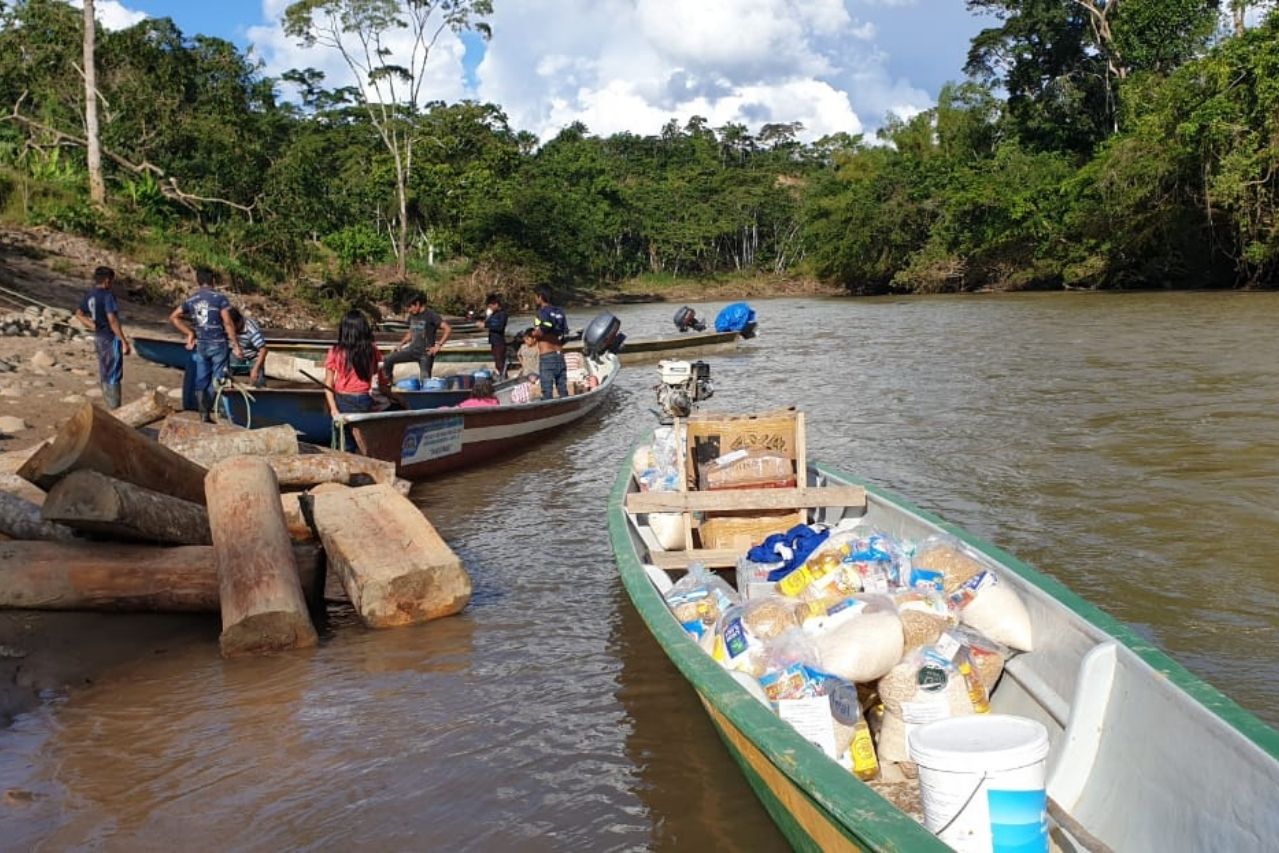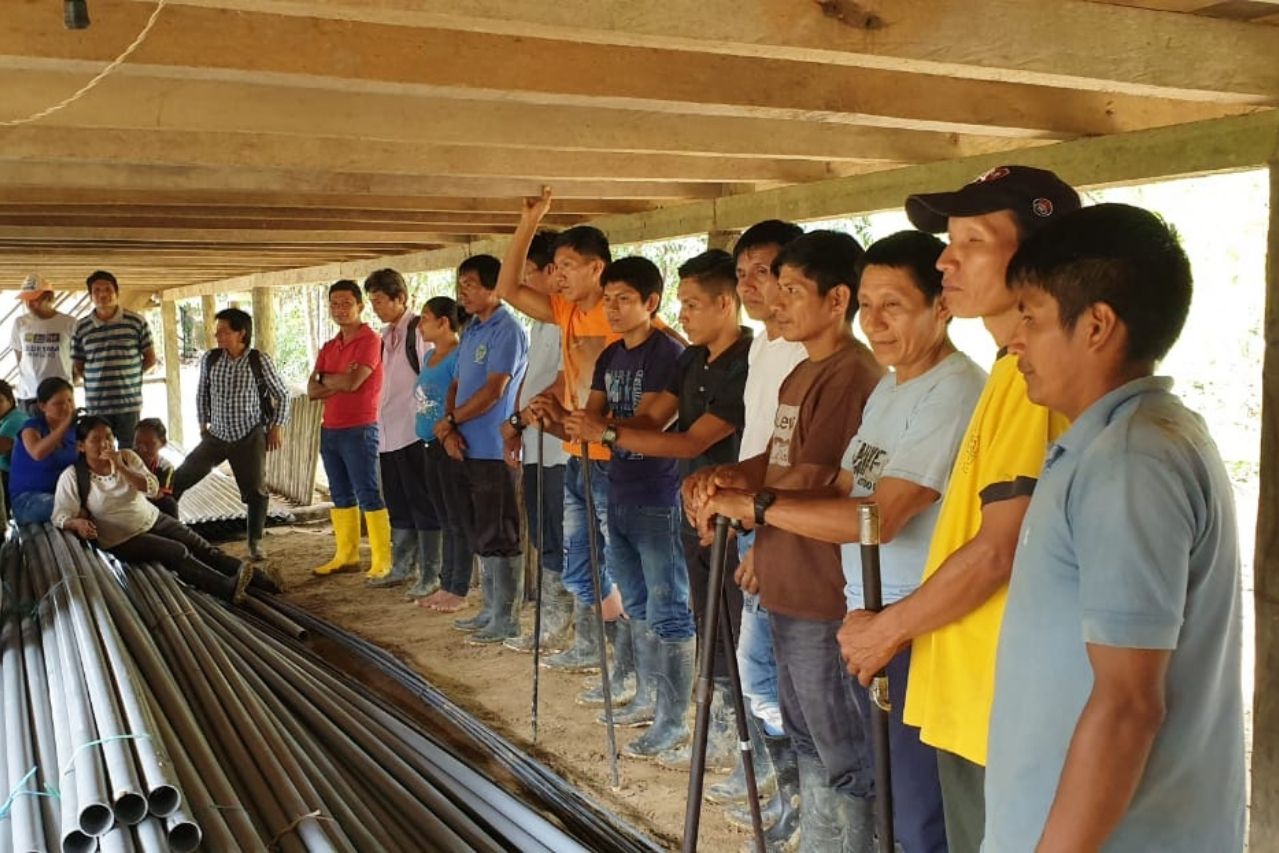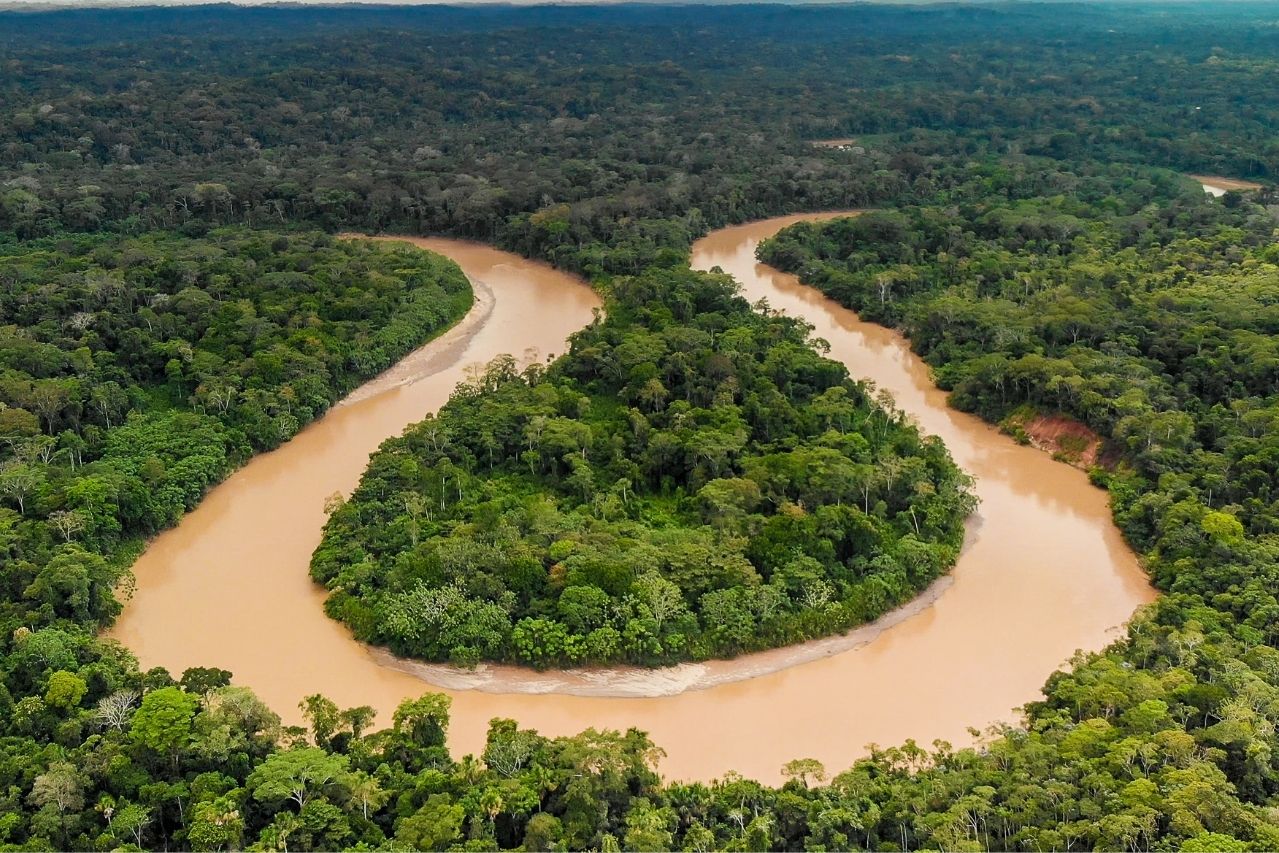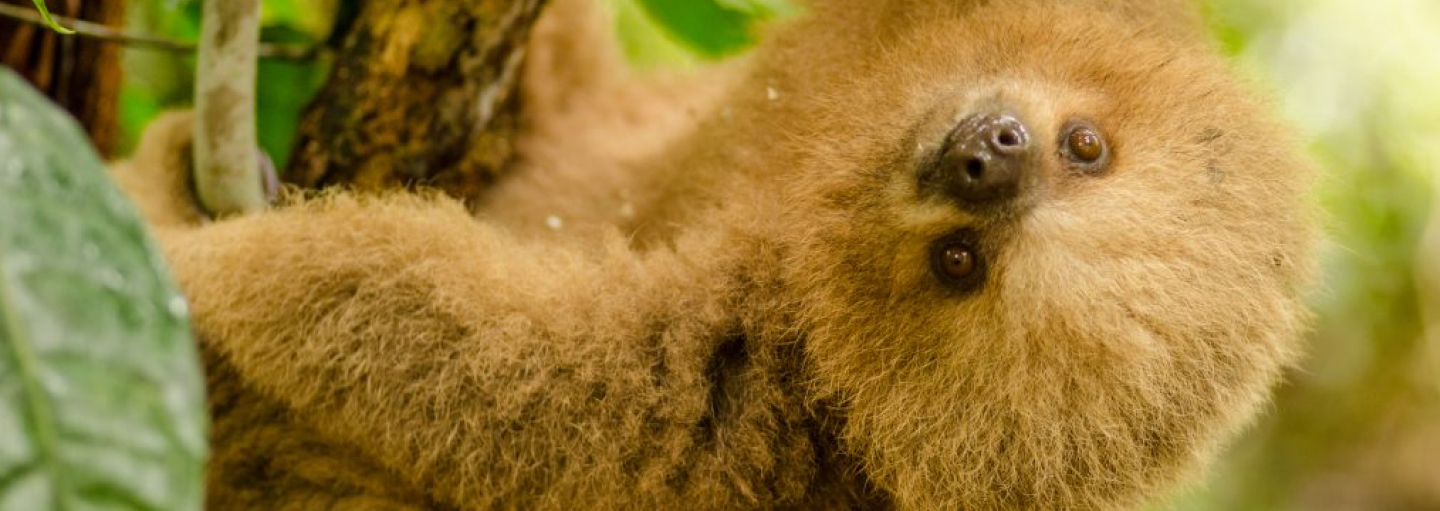Your generosity at work in the Amazon Rainforest
10/07/2020
Strategic Area:
People -
Content Type: Blog
Country:
Ecuador -
Because of compassionate people like you, the community of Pakayaku received the help they so desperately needed.
Sacha Casha, President of the Kichwa Ancestral People of Pakayaku, recalls being at home, happy because she had finally connected to the internet (no easy feat when you’re in the Amazon rainforest), when she saw her sister running towards her, screaming in despair. The Bobonaza River was rising.
After 20 minutes, her entire community was submerged under water and mud.
“It happened so fast that we couldn’t collect anything,” says Sacha. “We were left in shock, traumatized, scared.”
The Kichwa Ancestral People of Pakayaku is an indigenous community located on the banks of the Bobonaza River, in the province of Pastaza, Ecuador. The community is home to 794 people. Its territory spans 98,800 acres in the Amazon rainforest.
Earlier this year, extreme flooding in the Ecuadorian Amazon left hundreds of indigenous people without food and shelter. In Pakayaku, flooding destroyed homes, crops, water systems, roads, and the only bridge connecting the community to hospitals and schools across the river. It left the community’s health center without electricity, and made it nearly impossible to obtain basic provisions, cleaning equipment, and supplies.
This disaster occurred in the midst of the COVID-19 pandemic, making the situation even more serious.
Due to lack of food and clean water, skin and stomach diseases increased among Pakayaku’s community members. According to local doctor Sebastián Roldán, more than 85% of the community’ children suffered from malnutrition.

Donated supplies to the Pakayaku community.
Because of compassionate people like you, the community of Pakayaku received the help they so desperately needed.
With your support, Nature and Culture International safely supplied the community with food kits, cleaning supplies, and medicine. Additionally, we provided tools to rebuild damaged structures and equipment for the medical center.
“Thanks to you, we are able to help the Pakayaku community rebuild their water systems and reconstruct their homes,” says Jaime Toro, Nature and Culture conservationist. “You have provided critical support in response to the flooding and COVID-19 emergencies.”



Donated supplies to the Pakayaku community.
Your generosity is making a difference in the Pakayaku community, and helping ensure the protection of endangered ecosystems.
Indigenous communities have shaped forests and other landscapes around the world for thousands of years, accumulating unparalleled knowledge of the land and understanding of ecosystem management. Today, these communities are the last defense for many endangered ecosystems against increasing threats like logging, cattle ranching, and mining.
Pakayaku is one of the 13 indigenous communities that make up the Pastaza Kichwa Nationality – PAKKIRU, an organization dedicated to protecting and managing Pastaza’s forests. Communities within PAKKIRU care for their land under the concept “Kawsak Sacha” or “Living Forests,” which supports living in harmony with the natural world.
Despite recent challenges, Pakayaku and other indigenous communities remain committed to conservation. With support from Nature and Culture, Pastaza’s local government and indigenous nationalities are developing sustainable management and implementation plans that include Kawsak Sacha.
Just this month, Pastaza delivered a plan to reduce deforestation and degradation in the Amazon rainforest. Developed in collaboration with Nature and Culture, PAKKIRU, and other indigenous nationalities of Pastaza , the REDD+ Implementation Plan includes ways to protect Pastaza’s forests and fight climate change through conservation, effective management, and sustainable land use. It is the first time a local government in Ecuador has developed its own implementation plan in collaboration with indigenous nationalities

The Plan was developed by local authorities and indigenous communities.

The Plan includes ways to protect Pastaza’s forests and fight climate change through conservation, effective management, and sustainable land use.
Thank you for sending help to nature’s guardians! You are making a difference for these communities – and for the planet.
If you haven’t yet made a gift to Nature and Culture’s COVID-19 Relief Fund, you can still send help to communities in need. Visit natureandculture.org/help to make a difference today.


